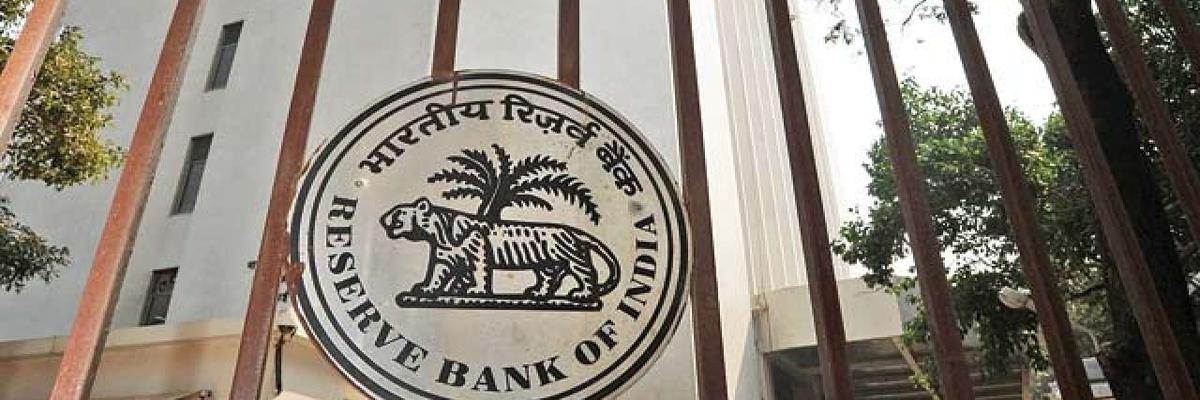Live
- A wellness journey in Azerbaijan’s great Caucasian Forest
- Boeing’s Starliner to fly 1st crewed mission to space on May 6
- Indians up their spending on dieticians by 125 pc in FY24: Report
- Tesla layoffs reminder of Twitter sackings, some departments lose 20 per cent staff
- Can Meditation and Mindfulness Help you Propel your Career?
- People in Karnataka won't tolerate ‘rowdyism’ in politics: Bommai
- Iran's President again warns Israel against counterattack
- Atlantis Dubai secures IBCCES Certified Autism Center designation
- Canadian government too emulating TN Chief Minister's school breakfast scheme: Udhayanidhi Stalin
- No one stole the party, says Ajit Pawar in veiled retort to Sharad Pawar
Just In

Even as the country waited with bated breath for the results of Assembly elections in five States dubbed by many as semifinal for the upcoming 2019 general elections, the Reserve Bank of India, the countrys apex bank and banking sector regulator, witnessed a change of guard Urjit Ravindra Patel, the 24th Governor of Reserve Bank of India, resigned abruptly
Even as the country waited with bated breath for the results of Assembly elections in five States dubbed by many as semifinal for the upcoming 2019 general elections, the Reserve Bank of India, the country's apex bank and banking sector regulator, witnessed a change of guard. Urjit Ravindra Patel, the 24th Governor of Reserve Bank of India, resigned abruptly.
Though Kenya-born, London School of Economics-educated Patel has cited personal reasons for his sudden and surprise decision to exit from the Mint Street, there is obviously more to his resignation than what meets the eye. Appointed for three years in September 2016, Gujarati-origin Patel, known as silent owl, served as RBI chief for a little over two years before quitting. He is the first RBI chief to resign before the end of tenure after 1990s.
The primary reason for his reluctance to continue as RBI chief seems to be growing distance and differences between him and the Central government. Just two months into his tenure, Patel faced flak after the Modi government’s surprise decision to demonetise high-value currency notes, a move which put the country into ‘currency chaos’. However, he subsequently tried to assert himself and did not budge when the government wanted a dovish stance on interest rates from RBI.
The differences between the RBI and the government reached flashpoint recently when the latter issued notices under Section 7 of RBI Act for the first time in the apex bank’s history. Reports indicated that the Central government wanted the apex bank to part ways with some of its reserves for boosting economic growth ahead of 2019 elections. Many saw this as an attempt by the government to interfere with the autonomy of the RBI. Rumours about his resignation surfaced at that time itself.
As expected, Patel’s sudden departure raised eyebrows not only in India, but outside also. Global rating agency Fitch on Wednesday said in a report that the resignation highlighted risks to RBI’s policy priorities. The rating agency also warned that increased influence on the Central bank could undermine the efforts to address bad loan problems in the country. Former Chief Economic Advisor Arvind Subramanian described RBI’s independence as sacred and it should not be compromised at any cost.
But the Modi government acted quickly and appointed Shaktikanta Das, former Union Finance Secretary, as 25th Governor of RBI. Incidentally, Das handled the controversial demonetisation exercise on behalf of the government. It will be interesting to see how the new incumbent in the Mint Street will handle raging issue of differences between the apex bank and the government.
After taking charge on Wednesday, he however made it clear that he would try to uphold the autonomy of the RBI. He also did not find fault with inflation targeting strategy of the apex bank. That’s a good sign indeed.
Whatever may be the direction that Das takes, reclusive Urjit Patel walked out of the RBI on his own terms. Perhaps, the noted economist did not want his reputation to take a hit. However, such resignations will not augur well for the country and the economy. It’s time for the Central government to act wisely while handling autonomous institutions like RBI.

© 2024 Hyderabad Media House Limited/The Hans India. All rights reserved. Powered by hocalwire.com







